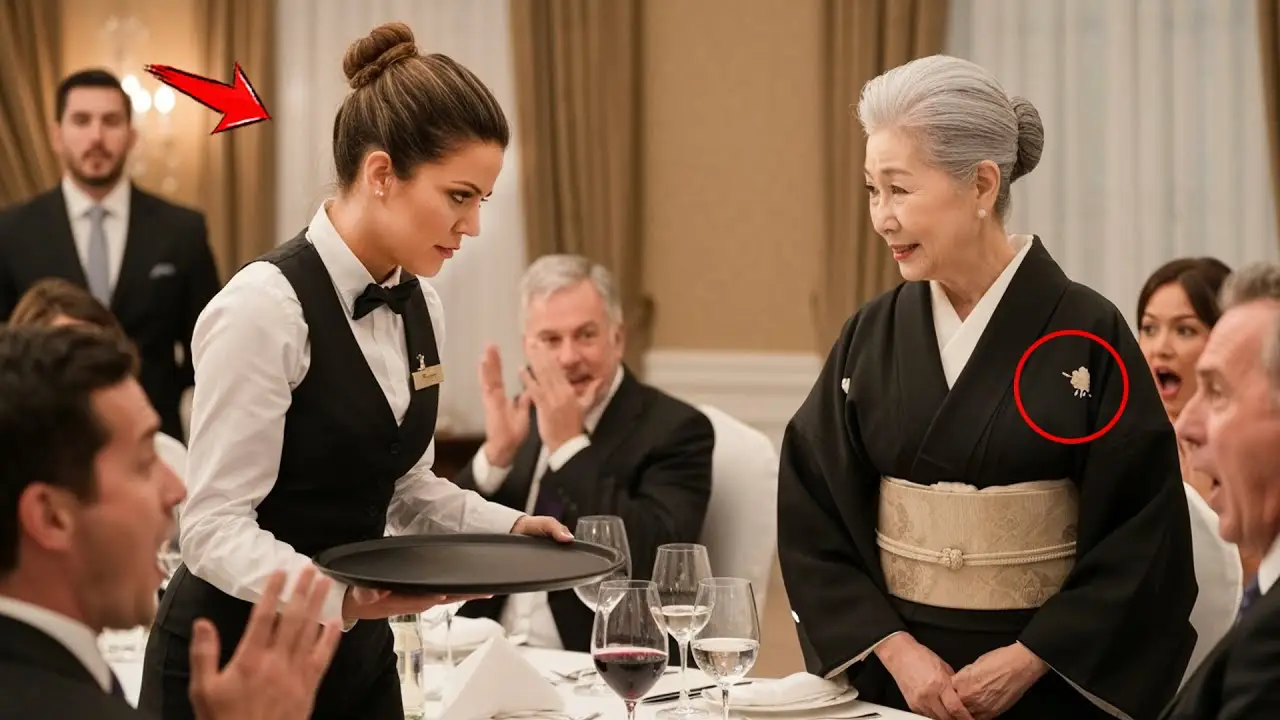To a father fighting his last battles far from home. I didn’t know, she finally managed, her voice barely above a whisper. I just couldn’t let him go hungry.
The colonel nodded. Sometimes that’s enough, Ms. Millers. Sometimes feeding a hungry child without asking why they’re hungry is the greatest kindness of all.
As if on cue, every military person in the room and every soldier standing outside by the vehicles saluted in perfect unison. The customers in the diner, moved by the ceremony unfolding before them, rose to their feet in silent respect. Jenny, the quiet waitress who had lived nearly invisibly for years, stood in the center of it all, clutching a father’s last thank you in her hands.
A woman whose small, daily kindness had preserved not just a child’s well-being, but a soldier’s honor and peace of mind in his final days. The week following the colonel’s visit transformed Rosie’s Diner in ways no one could have predicted. The story spread through town like wildfire, jumping from conversation to social media to the local newspaper.
The same Facebook group that had mocked Jenny’s charity case now shared a heartfelt retelling of Master Sergeant Thompson’s letter, gathering thousands of shares and supportive comments. Regular customers began requesting Jenny’s section specifically. They left generous tips with notes of appreciation.
Thank you for reminding us what matters, and my son is in the Navy. Your kindness gives me hope. Mark Urey, who had initially grudged Jenny’s free pancakes, hung a small American flag beside the booth where Adam had sat.
Beneath it, he placed a discreet plaque, reserved for those who serve and the families who wait. The booth was never empty again, occupied by veterans, active duty personnel passing through town, and occasionally by families clearly struggling, but treated with quiet dignity by the staff. On the seventh day after the colonel’s visit, a manila envelope arrived addressed to Jenny.
Inside was a handwritten letter on lined notebook paper, the carefully formed letters betraying the youth of its author. Dear Ms. Jenny, I didn’t know your name until that day the colonel came to find you. But every morning for those months, you were the only person who looked at me like I wasn’t invisible or broken.
Dad always told me that real heroes don’t wear capes. They wear the uniform. But I think sometimes they wear aprons too.
When dad stopped writing, I thought the world had forgotten both of us. But you remembered me every day, even when I couldn’t tell you why I was alone. Grandma and grandpa are nice.
They’re teaching me to fish, and grandma makes good cookies. But I miss dad, and sometimes I miss your pancakes too. Thank you for not asking questions when I couldn’t answer them.
Your friend, Adam Thompson. P.S. I finished the book I was reading. It had a happy ending after all.
Jenny framed the letter and hung it behind the counter. Not prominently, not for show, but as a personal reminder of why small kindnesses matter. When customers asked about it, she would simply smile and say, just a thank you note from a special customer.
Word of the diner’s connection to special forces spread throughout military communities. Soldiers passing through town made detours to visit, often leaving unit coins or patches as tokens of appreciation. These too found their place on a small bulletin board behind the counter, a growing collage of gratitude from around the world.
Three months after the colonel’s visit, a school group came to the diner for lunch after a field trip. An eight-year-old girl with curious eyes studied Jenny as she refilled water glasses. My dad says you’re a hero, the child announced matter-of-factly.
Do you feel like one? Jenny smiled, kneeling to meet the girl’s gaze. No, sweetheart, I’m just someone who knows what it feels like to be hungry. Not just for food, the girl’s teacher added quietly, having overheard the exchange.
Jenny looked up, meeting the woman’s understanding gaze with a nod. The teacher was right. Hunger came in many forms.
Food was only the most obvious. As summer approached, the diner hosted a fundraiser for military families, raising enough to establish a small emergency fund for children of deployed parents. Mark, surprisingly, matched the donations personally, admitting to Jenny that her quiet persistence had changed something in him.
Never understood why my father was so adamant about feeding every stray kid in the neighborhood, he confessed. Drove my mother crazy, but I think I get it now. Sometimes a meal is more than food.
On a quiet Tuesday morning, almost exactly a year after Adam had first walked into the diner, Jenny arrived for her shift to find something small and metallic on her usual station. A challenge coin, the special token carried by military personnel, usually given only to those within their units, lay beside her order pad. One side bore the insignia of the special forces.
The other had been custom engraved, Semper Memer, always remembering. Jenny looked around the empty diner, searching for whoever might have left it. Finding no one, she stepped outside, scanning the street as the early morning breeze gently stirred the American flag hanging above the entrance.
No unusual cars were parked nearby, no waiting messengers, just the town waking up, sprinklers ticking on lawns, and the distant sound of the school bus making its first rounds. She slipped the coin into her pocket, its weight a comforting reminder that kindness offered without expectation sometimes returns in unexpected ways. That evening, as she hung her apron before heading home, Jenny noticed Mark placing a new sign in the diner’s window.
Simple but elegant, it read, Whoever you are, whatever you can pay, no one leaves hungry. When he caught her watching, he shrugged self-consciously. New policy, figured it was time.
Jenny smiled, understanding the unspoken acknowledgement in his gesture. No grand speeches, no public declarations, just a quiet commitment to see the hunger in others and respond with what was needed most. Food without judgment, kindness without questions.
As she walked home in the fading light, the challenge coined a solid presence in her pocket. Jenny thought about Adam, now growing up with his grandparents in Colorado, carrying his father’s memory, and perhaps, she hoped, the knowledge that even in one’s darkest moments, kindness exists in unexpected places. Not everyone who helps needs recognition.
Some people just need to know that today, someone isn’t hungry, and that alone is enough to change a life.













